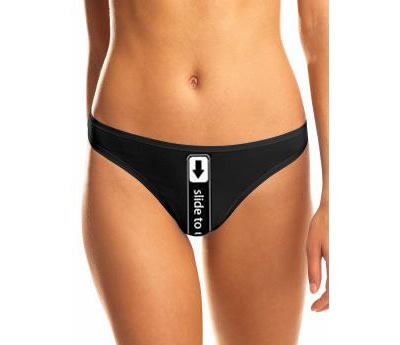Apple finally won a $ 120 million lawsuit against Samsung for patent infringement on slide-to-unlock

Finger movement unlocks the screen. Illustration of US Patent No. 8,046,721, issued October 25, 2011 to Apple. The inventors of the movement of a finger - seven employees of Apple, a patent filed June 2, 2009
After several years of deliberation in the courts, Apple’s long-suffering lawsuit against Samsung for violating US patent No. 8,046,721 was finally approved in favor of Apple.
On November 6, 2017, the US Supreme Court ruled that it would no longer consider appeals in this case. Thus, the verdict of 2014 remains in force and is being carried out: Samsung should pay about $ 120 million to Apple for selling the Apple’s patented original invention of the company - unlocking the device with a flick of a finger.
The history of this trial can begin with the history of the issue of the patent itself , which many considered obvious and trivial. Apple has unsuccessfully tried to patent the slide-to-unlock movement since 2005, but for reasons of banality or some other reasons, it has not been patented. Only in 2011, the corporation still "starved out" the patent office and received the desired patent.
Somehow, Apple managed to get a patent despite the fact that a similar “invention” has been used in another “smartphone” since 2005 (the video shows that unlocking is done with the flick of a finger across the screen. Perhaps the fact that the slider there is not there, but the principle of unlocking is the same. There is still a possibility that Apple applied to the patent office as soon as it saw an interesting and unpatented function in another smartphone. The developers of that phone apparently thought the idea was too obvious and did not noy to patent, Apple had a different opinion.
One way or another, but Apple received its patent in 2011. At this point, Samsung and other competitors have already implemented slide-to-unlock in their devices. Actually, by this moment the slider movement on the screen has already become a truly recognized standard. And Apple arrived logically. Not exchanging for small manufacturers, in April 2014, the company filed a lawsuit against its main competitor, Samsung. The lawsuit covered two patents: 5,946,647 (turning addresses and phone numbers into links) and 8,046,721 (slide-to-unlock). Initially, Apple demanded to compensate for its losses in the amount of $ 2.191 billion. But after three days of the trial, the judge limited himself to a more modest amount of damage compensation of $ 119,625,000 ( court decision, pdf ). In addition, he admitted that Apple also violated one of the Samsung patents - and must pay compensation of $ 158,400.
Of course, Samsung has filed an appeal. Further judicial debate lasted more than three years. In February 2016, Samsung was already celebrating a victory, because the US Court of Appeals for the Federal District overturned the decision of the lower court and dismissed Apple’s claim against Samsung in this case (by a 3-0 vote).
But in October 2016, the Enlarged Court of Appeal overturned the previous decision on the appeal (by a vote of 8-3) and returned the legality to the original verdict. Samsung appealed to the Supreme Court. Now put the final point. Now, no appeals will be considered, but this concerns only these two patents, but about the appeal in the second case of 2012 (where the court awarded Samsung initially to pay a fine of $ 1.049 billion for violating several design patents) finally figured out, the next hearing scheduled for May 2018. Samsung has already managed to reduce the amount of the fine to $ 400 million and she hopes for greater success.
Over the past year, Apple's patent for unlocking the device with a flick of the finger spawned many jokes and memes.

Many wondered how it was possible to patent such a natural movement and what would happen next - a patent for putting the tube to the ear or a patent for the rectangular shape of a smartphone? By the way, it turned out the second, but that's another story.
Samsung disagreed with the Supreme Court’s decision and considers Apple’s actions “patent misuse”.
All Articles